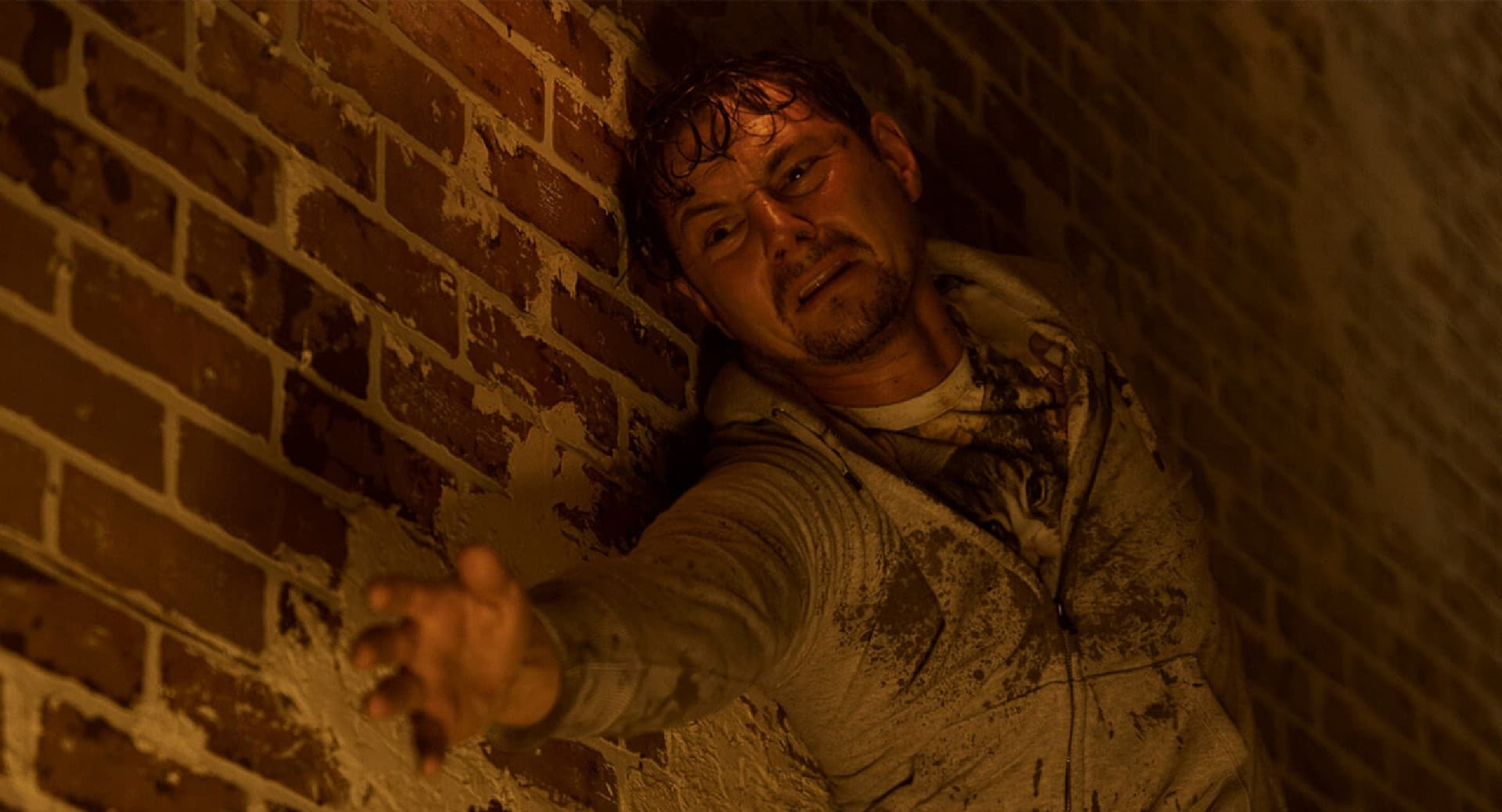Dear David – Film Review
Published October 16, 2023

Dear David, a brand new supernatural horror film from John McPhail (best known for helming the adorably wholesome horror comedy Anna and the Apocalypse), is a disappointing and underwhelming attempt to bring an online ghost story to the big screen. Despite having an intriguing premise and a strong cast, the film lacks originality and genuine scares, making for a tedious and boring viewing experience.
The protagonist of the story is Adam (Augustus Prew), a comic book creator who develops sleep paralysis and haunting visions after interacting with online trolls. Adam sets out on a quest to learn the truth about the evil presence after becoming convinced that he is being haunted by the vengeful spirit of a dead child named David.
The film’s lack of innovation in its exploration of the horror genre is one of its biggest flaws. The plot heavily employs cliches and worn-out tropes, and the jump scares are not only predictable but also overdone. The eerie whispers, flickering lights, and objects moving by themselves all follow a predictable pattern, which makes the ghostly occurrences disappointingly formulaic. Dear David feels like a rehashed compilation of scenes lifted from countless other supernatural films due to the glaring lack of innovation or originality.
Despite the cast’s competent performances, the film’s subpar script cannot be improved upon. Adam is portrayed by Augustus Prew in a passable performance, but because his character doesn’t have much backstory or development, it’s hard for the audience to empathize with him. Although they all give passable performances, Andrea Bang as Evelyn, Justin Long as BuzzFeed’s CEO Bryce, René Escobar Jr. as Kyle, and Rachel Wilson as Linda’s character are one-dimensional and stereotypical.
The most disappointing underutilization of a character, however, is Bryce, played by Long. Long was once considered a horror icon, and ever since Barbarian came out last year, we’ve noticed a little bit of a comeback for him. Unfortunately, this film did not do him justice, and I can only hope that he will eventually land another fantastic horror role.
The pacing is also uneven, resulting in boring scenes interspersed with hastily developed plot points. It is hard for viewers to become invested in the story or its characters because the narrative lacks a strong and compelling narrative arc. Important plot points are skipped over, depriving the film of any real emotional resonance. As a result, there is less tension or suspense because the audience is uninterested in the characters’ outcomes.
Although effective, the film’s visual effects are not particularly ground-breaking and add little to the overall viewing experience. The supernatural occurrences and ghostly apparitions don’t have the terrifying realism required to make people truly afraid. Dear David falls short in a genre that thrives on visual innovation and creativity by choosing a traditional and uninspired approach to its visuals.
The lackluster screenplay does little to be saved by John McPhail’s direction of the film. Although McPhail has previously shown that he can give projects a special energy, Dear David feels different from his previous work. Dear David lacks the creative and artistic direction that might have been able to elevate the subject matter. McPhail’s direction fails to elicit a sense of tension or atmosphere, depriving the film of the spooky atmosphere necessary for an effective horror experience.
Additionally, Dear David lacks thematic nuance. The script by Mike Van Waes only scratches the surface of these themes, despite having the potential to explore important subjects like online harassment, social media toxicity, or the effects of one’s actions in the digital age. The film’s emphasis on worn-out supernatural elements overshadows any attempts at social commentary, wasting a chance to give its story more depth.
Dear David is a forgettable addition to the horror genre that provides nothing more than run-of-the-mill frights. It is a tedious and disappointing experience to watch because of its lack of originality, underdeveloped characters, and lack of real scares. The idea of turning a popular online ghost story into a movie had promise, but the execution was poor, leaving viewers with a forgettable experience. Dear David ultimately falls short of living up to its intriguing premise, so save your time and money for a more creative and compelling horror experience.
